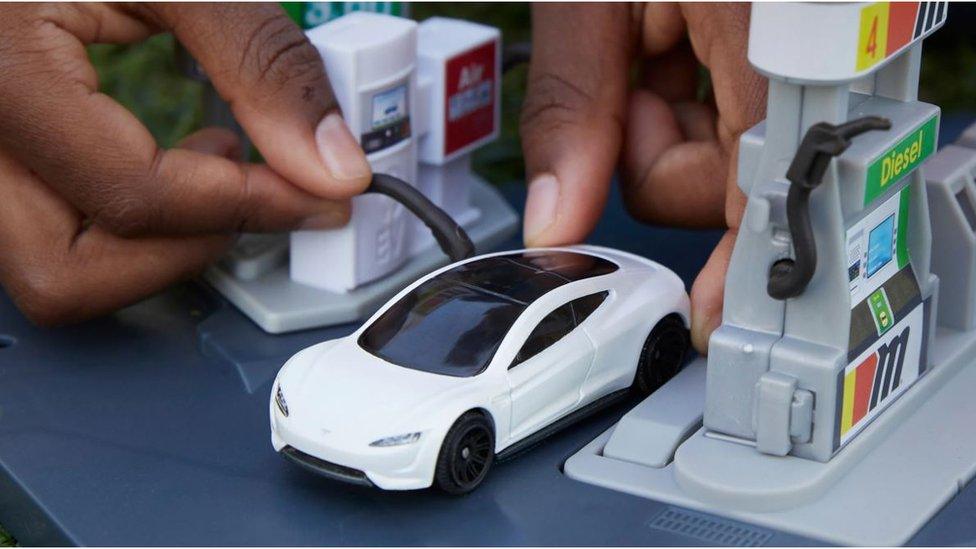How are toymakers trying to help the environment?
- Published
- comments

The first model will be a mini version of the Tesla Roadster
British toymaker, Matchbox, says it's trying to help the environment with the new cars it's launching.
There'll be a series of toy cars based on real-life electric vehicles and the company will be using recycled materials to make some of them.
The first will be a mini version of the Tesla Roadster which will be the first made almost entirely (99%) from recycled materials.
Matchbox is owned by American toymaker Mattel and sells more than 40 million toy vehicles each year.
Other Matchbox cars being launched will be based on electric and hybrid vehicles made by Nissan, Toyota and BMW.
The mini Tesla is made from recycled zinc and plastic with just 1% from non-recycled stainless steel. It will come in zero-plastic packaging made from paper and wood fibre.
The aim of the sets is to raise "environmental consciousness" among children, and "empower the next generation of Matchbox fans to help steer us towards a sustainable future," said Roberto Stanichi, from Mattel.
What are other companies doing?
Lego has said it will start replacing plastic packaging with paper bags this year. The company said it had been prompted to do this by letters sent to it from children.
Lego bricks themselves are made of plastic but the company is looking into other materials that could be used instead.
Supermarket Waitrose has said it will no longer sell children's magazines with plastic disposable toys to help tackle pollution. The decision was made after some children asked for the free plastic toys to stop, like 10-year-old Skye.
Skye is campaigning for magazines to stop including plastic toys
Toymaker Mattel, which also makes Hot Wheels, says it plans to use 100% recycled, recyclable or bio-based plastic materials in the manufacturing of all its products and packaging by 2030.
- Published19 September 2019
- Published15 November 2019
- Published12 November 2019
- Published16 September 2020
- Published24 March 2021
